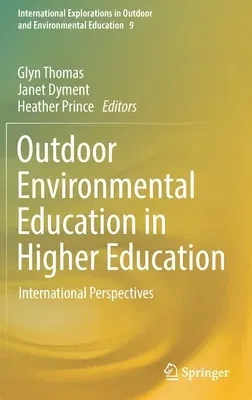This book brings together an international group of authors to discuss
the outdoor environmental education (OEE) theory and practice that
educators can use to support teaching and learning in higher education.
The book contents are organised around a recently established list of
threshold concepts that can be used to describe the knowledge and skills
that university students would develop if they complete a major in
outdoor education.
There are six key sections: the theoretical foundations and philosophies
of OEE; the pedagogical approaches and issues involved in teaching OEE;
the ways in which OEE is a social, cultural and environmental endeavour;
how outdoor educators can advocate for social justice; key approaches to
safety management; and the need for on-going professional practice. The
threshold concepts that form the premise of the book describe outdoor
educators as creating opportunities for experiential learning using
pedagogies that align their programme's purpose and practice. Outdoor
educators are place-responsive, and see their work as a social, cultural
and environmental endeavour. They advocate for social and environmental
justice, and they understand and apply safety principles and routinely
engage in reflective practice.
This book will provide clarity and direction for emerging and
established outdoor educators around the world and will also be relevant
to students and professionals working in related fields such as
environmental education, adventure therapy, and outdoor recreation.

